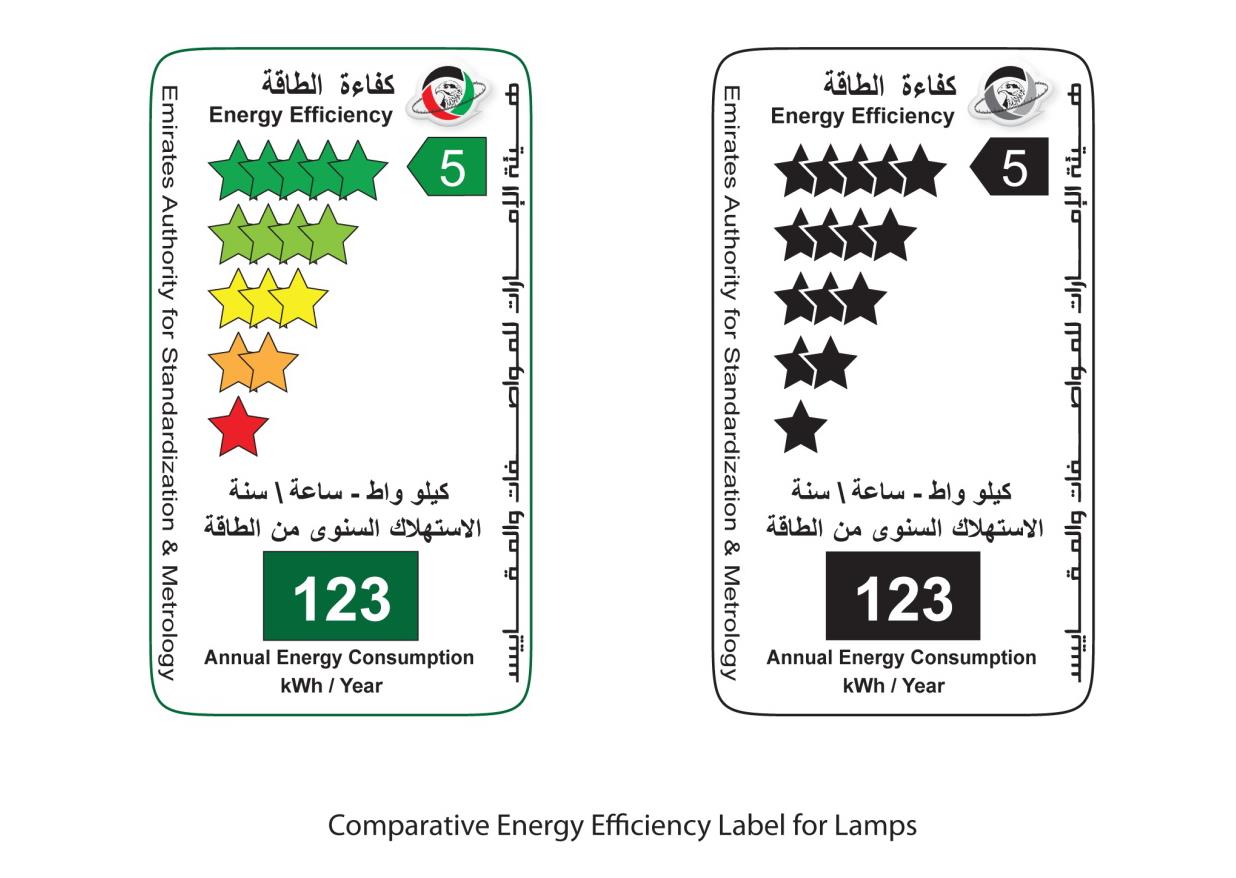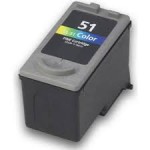Ihre Privatsphäre ist uns wichtig! Sie können entscheiden, welche Cookies Sie zulassen möchten. Weitere Informationen finden Sie in unserer Datenschutzerklärung. Sie können die erteilte Einwilligung jederzeit widerrufen.
Alisa Maier, Autor auf - Seite 22 von 24
29
Sep. 2014
WEEE Germany – Stiftung EAR changed factors for calculating guarantee amounts
11
Sep. 2014
UAE: Various Requirements for Lighting Products
 In UAE, lighting products have to fulfil a lot of requirements regarding energy efficiency, hazardous chemicals, and electrical safety. On December 31, 2013 the cabinet of UAE released Decision No. 34/2013, amending the Technical Regulation 28-11-2012 “On the requirements for approval and registration of lighting products”. The requirements of the Technical Regulation became obligatory on July 1, 2014. Regarding energy efficiency, lighting products which are imported into UAE have to be labelled accordingly. Existing products on the market will be tolerated until the end of 2014. As of January 1, 2015, non-compliant products are banned from the market.
Products in scope:
• Incandescent lamps ≥ 16W (watts)
• Linear fluorescent lamps
• Compact fluorescent lamps (CFLs)
• Halogen lamps
• Light emitting diode (LED) lamps
• Luminaires and Control gears for general lighting purposes.
In UAE, lighting products have to fulfil a lot of requirements regarding energy efficiency, hazardous chemicals, and electrical safety. On December 31, 2013 the cabinet of UAE released Decision No. 34/2013, amending the Technical Regulation 28-11-2012 “On the requirements for approval and registration of lighting products”. The requirements of the Technical Regulation became obligatory on July 1, 2014. Regarding energy efficiency, lighting products which are imported into UAE have to be labelled accordingly. Existing products on the market will be tolerated until the end of 2014. As of January 1, 2015, non-compliant products are banned from the market.
Products in scope:
• Incandescent lamps ≥ 16W (watts)
• Linear fluorescent lamps
• Compact fluorescent lamps (CFLs)
• Halogen lamps
• Light emitting diode (LED) lamps
• Luminaires and Control gears for general lighting purposes.
28
Aug. 2014
WEEE: Printer cartridges with electronic components in scope of German ElektroG
 Toner and ink cartridges which include electronic components are considered to be in the scope of the German ElektoG (independent from the transposition of the WEEE Directive).
This is the result of a discussion between representatives of German Umweltbundesamt (environmental protection agency), the German Stiftung ear (national WEEE register) and the industry association BITKOM on August 5, 2014.
Producers or distributors who bring toner or ink cartridges on the market which need electric current or electromagnetic fields during their use must register the company and the cartridges at ear, submit the obligatory quantity reports and mark their devices with the crossed-out wheeled waste bin.
This interpretation of the German ElektroG with respect to toner and ink cartridges with electronic components is valid immediately and can be subject to enforcement practice of local authorities.
The “new” interpretation is in line with the concept of German Stiftung ear, while industry has argued to continue to consider toner and ink cartridges as supplies material which is not in the scope of German ElektroG. This interpretation was common understanding in the past. Competent authorities are expected to examine more closely compliance with the new interpretation beginning next year, according to BITKOM.
Toner and ink cartridges which include electronic components are considered to be in the scope of the German ElektoG (independent from the transposition of the WEEE Directive).
This is the result of a discussion between representatives of German Umweltbundesamt (environmental protection agency), the German Stiftung ear (national WEEE register) and the industry association BITKOM on August 5, 2014.
Producers or distributors who bring toner or ink cartridges on the market which need electric current or electromagnetic fields during their use must register the company and the cartridges at ear, submit the obligatory quantity reports and mark their devices with the crossed-out wheeled waste bin.
This interpretation of the German ElektroG with respect to toner and ink cartridges with electronic components is valid immediately and can be subject to enforcement practice of local authorities.
The “new” interpretation is in line with the concept of German Stiftung ear, while industry has argued to continue to consider toner and ink cartridges as supplies material which is not in the scope of German ElektroG. This interpretation was common understanding in the past. Competent authorities are expected to examine more closely compliance with the new interpretation beginning next year, according to BITKOM.
01
Aug. 2014
Additional Copyright Levies with regard to Streaming Services?
On 01, Aug. 2014 | In Copyright Levies, News | By Alisa Maier
 Streaming services for video and audio have come in the focus of EU authorities in terms of copyright levies. EU authorities want to generate additional revenue for streaming services. 1cc has recently examined in detail what kind of claims relating to streaming and cloud services are being discussed.
Although the new streaming services require an access device like PC, Tablet or Smartphone, it usually does no longer result in a private copy: Streaming enables listening to music and watching videos without buying the music clip or the video as a file (download) and/or as hardcopy on a CD, DVD, etc.
But instead of adapting the existing levy systems or reducing the levies because less private copies will arise, thoughts of EU bodies and French socialist government, for instance, are moving in a completely different direction. Recent reports consider to apply taxation to further devices and to charge digital services in addition. This open question will be part of future negotiations with the rightholder organisations.
Streaming services for video and audio have come in the focus of EU authorities in terms of copyright levies. EU authorities want to generate additional revenue for streaming services. 1cc has recently examined in detail what kind of claims relating to streaming and cloud services are being discussed.
Although the new streaming services require an access device like PC, Tablet or Smartphone, it usually does no longer result in a private copy: Streaming enables listening to music and watching videos without buying the music clip or the video as a file (download) and/or as hardcopy on a CD, DVD, etc.
But instead of adapting the existing levy systems or reducing the levies because less private copies will arise, thoughts of EU bodies and French socialist government, for instance, are moving in a completely different direction. Recent reports consider to apply taxation to further devices and to charge digital services in addition. This open question will be part of future negotiations with the rightholder organisations.
09
Juli 2014
1cc Webinar: Neue Verpflichtungen für Online-Händler
On 09, Juli 2014 | In Veranstaltungen | By Alisa Maier
 Speziell an Online-Händler wendet sich das Webinar der 1cc am 22. Juli 2014: Wir informieren Sie über Neuerungen des Verbraucherrechts sowie die Neufassung der Elektroaltgeräte-Richtlinie 2012/19/EU (WEEE Recast) und geben praktische Tipps für die Umsetzung.
Termin: 22. Juli 2014 um 15.00 Uhr
Speziell an Online-Händler wendet sich das Webinar der 1cc am 22. Juli 2014: Wir informieren Sie über Neuerungen des Verbraucherrechts sowie die Neufassung der Elektroaltgeräte-Richtlinie 2012/19/EU (WEEE Recast) und geben praktische Tipps für die Umsetzung.
Termin: 22. Juli 2014 um 15.00 Uhr
Referentin: Katrin Beisswenger, 1cc
Anmeldung unter: https://attendee.gotowebinar.com/register/8197346628218407426. Die Teilnahme am Webinar ist kostenfrei. Bitte melden Sie sich bis spätestens 15. Juli 2014 an, da die Teilnehmerzahl auf 20 Personen begrenzt ist.04
Juli 2014
1cc Webinar: WEEE 2 – Umsetzungsstatus in der EU
On 04, Juli 2014 | In Veranstaltungen | By Alisa Maier
06
Juni 2014
Levies for Reprography in Austria: Renewal of a very complex system
On 06, Juni 2014 | In Copyright Levies, News | By Alisa Maier
 Copyright Levies for reprographic devices like copiers, scanners and printers in Austria already being very high, have been increased further on. As every year, the tariffs are adjusted right now, valid as of 1 July 2014. The highest tariff in Austria is at the moment nearly 1.300 € per device for a Laser Multifunctional Printer and/or Laser Copier. This tariff is about 15-times more the levy in Germany for the same device; many other direct product comparisons are even more distinctly, with up to 50-times more the levy for Scanners. So far, the yearly adjustment also continuously included an error: For some products the discounted tariff was even higher than the non-discounted tariff. After six years of follow-up by 1cc GmbH, this error has finally been eliminated. Unfortunately, that was solved by a simple rule: In such a case, the next tariff higher is to be applied now.
In addition, the Austrian levy system for reprographic devices is obsolete because of its complexity: There are for any kind of reprographic devices more than 80 separate tariffs, depending on the product specifications, the contract situation of the company, the tariff caps according to the product prices, the exact date of sales, etc. The appropriate tariffing for every single device depended on up to ten characteristics! This evokes already in the everyday reporting frequent discussions with the authorities, and goes along with tax rates, deadlines and special applications, like exports, to be considered. It may be seen as the peak of complexity that the validity periods of the tariffs depends on the contractual situation of the company with collecting society Literar Mechana: the yearly indexation of tariffs take place for contracting parties from July to July, for all other companies according to the calendar year.
Thus, it requires a lot of knowledge and well organized processes to classify the products correctly and to report the sales figures in Austria, i.e. on the one hand the correct categorization of the products and equipment, and the correct application of tariffs on the other hand. These evaluations might be very elaborate, especially when detailed obligations, including tariffs, contracts, forms and further information are not instantly available. Upon request, 1cc GmbH will show you in detail the full complexity of the Austrian system.
Copyright Levies for reprographic devices like copiers, scanners and printers in Austria already being very high, have been increased further on. As every year, the tariffs are adjusted right now, valid as of 1 July 2014. The highest tariff in Austria is at the moment nearly 1.300 € per device for a Laser Multifunctional Printer and/or Laser Copier. This tariff is about 15-times more the levy in Germany for the same device; many other direct product comparisons are even more distinctly, with up to 50-times more the levy for Scanners. So far, the yearly adjustment also continuously included an error: For some products the discounted tariff was even higher than the non-discounted tariff. After six years of follow-up by 1cc GmbH, this error has finally been eliminated. Unfortunately, that was solved by a simple rule: In such a case, the next tariff higher is to be applied now.
In addition, the Austrian levy system for reprographic devices is obsolete because of its complexity: There are for any kind of reprographic devices more than 80 separate tariffs, depending on the product specifications, the contract situation of the company, the tariff caps according to the product prices, the exact date of sales, etc. The appropriate tariffing for every single device depended on up to ten characteristics! This evokes already in the everyday reporting frequent discussions with the authorities, and goes along with tax rates, deadlines and special applications, like exports, to be considered. It may be seen as the peak of complexity that the validity periods of the tariffs depends on the contractual situation of the company with collecting society Literar Mechana: the yearly indexation of tariffs take place for contracting parties from July to July, for all other companies according to the calendar year.
Thus, it requires a lot of knowledge and well organized processes to classify the products correctly and to report the sales figures in Austria, i.e. on the one hand the correct categorization of the products and equipment, and the correct application of tariffs on the other hand. These evaluations might be very elaborate, especially when detailed obligations, including tariffs, contracts, forms and further information are not instantly available. Upon request, 1cc GmbH will show you in detail the full complexity of the Austrian system.
05
Juni 2014
Chemspec Europe 2014
On 05, Juni 2014 | In Veranstaltungen | By Alisa Maier
28
Mai 2014
Intersolar 2014
On 28, Mai 2014 | In Veranstaltungen | By Alisa Maier
22
Mai 2014


